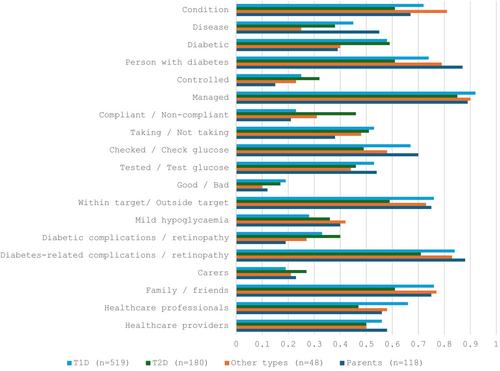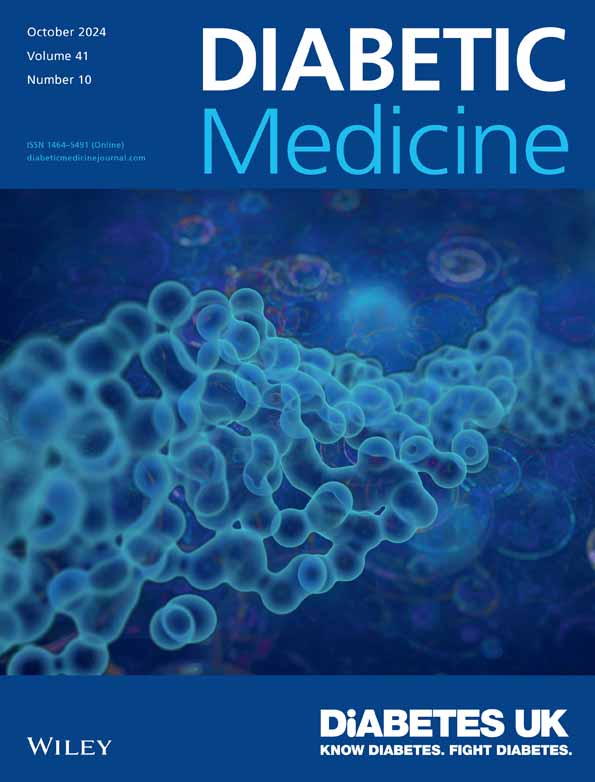“I feel like I'm being talked to like an equal”: Diabetes language matters to adults with diabetes, a mixed-methods study
Abstract
Aim
To explore reactions to and preferences for words/phrases used in communications about diabetes among adults with diabetes and parents of children with diabetes.
Methods
Eligible adults (aged 18+ years) living with diabetes, or parenting a child with diabetes, were recruited via social media to complete an online cross-sectional, mixed-methods survey. Study-specific items were used to examine 22 commonly used diabetes words/phrases in terms of participants' cognitive perceptions (‘helpful’, ‘respectful’, ‘accurate’, ‘harmful’, ‘judgmental’ and ‘inaccurate’) and emotional reactions (‘optimistic’, ‘motivated’, ‘supported’, ‘understood’, ‘offended’, ‘blamed’, ‘distressed’ and ‘angry’). Open-ended questions invited further feedback on (non-)preferred language and its impact(s). Data were analysed using descriptive statistics and inductive thematic analysis.
Results
Participants (N = 865) included adults with diabetes (type 1: n = 519; type 2: n = 180, other types: n = 48) and parents of children with diabetes (n = 118). Words/phrases most commonly associated with negative perceptions/emotional responses were ‘non-compliant’ (60% judgmental; 47% felt blamed) and ‘…good/bad’ (54% judgmental; 43% blamed). Positive perceptions were reported for ‘managing diabetes’ (73% helpful, 47% felt understood), ‘person with diabetes’ (72% respectful; 49% understood), ‘…within/outside target range’ (60% helpful, 44% understood), and ‘condition’ (58% respectful; 43% understood). Participants' qualitative responses illuminated perceptions, experiences and impacts across five themes: (1) accuracy and simplicity; (2) identity; (3) blame, judgement and stigma; (4) respect and trust and; (5) support, hope and feeling understood. Themes were consistent across diabetes types.
Conclusions
These findings provide novel evidence into (non-)preferred, and potential (negative and positive) impacts of, commonly used diabetes words/phrases, supporting the international #LanguageMatters movement.


 求助内容:
求助内容: 应助结果提醒方式:
应助结果提醒方式:


